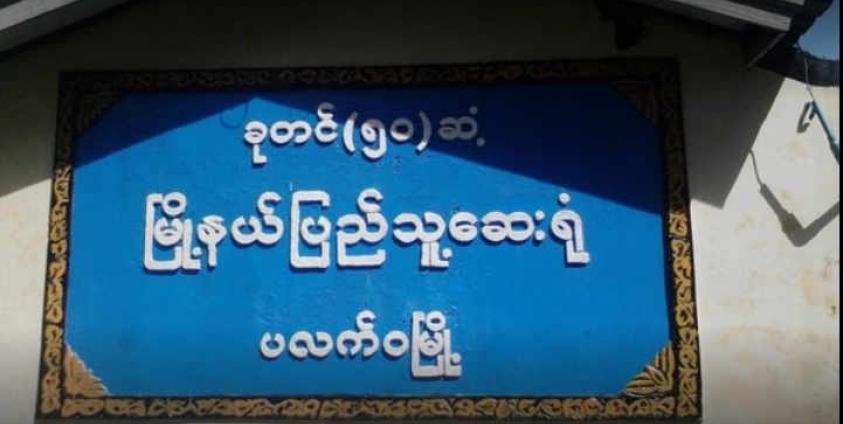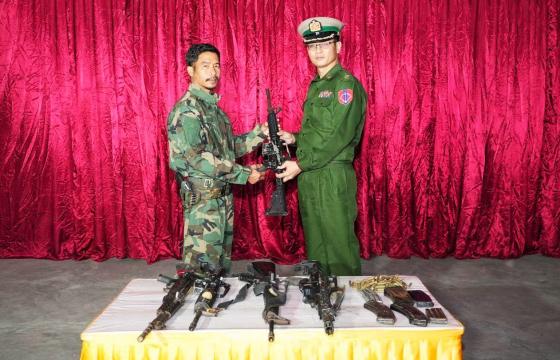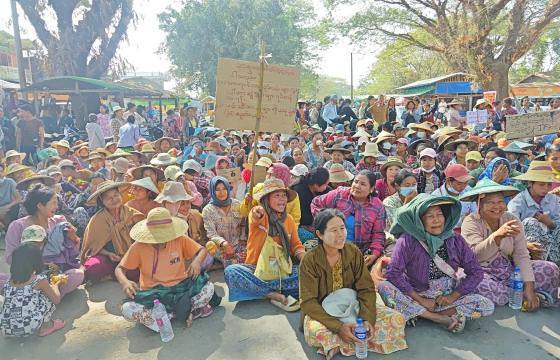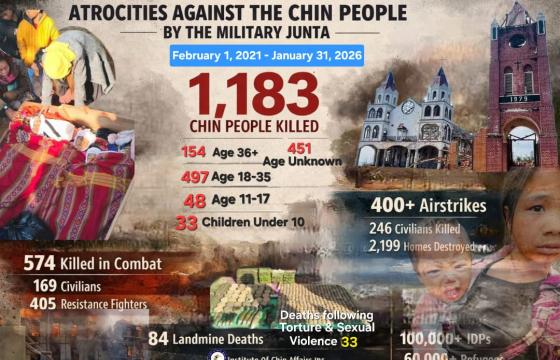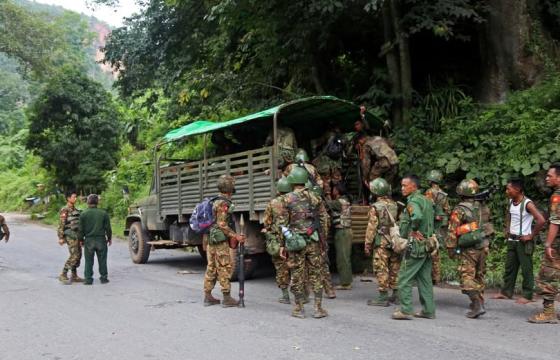As doctors in the public hospital in Paletwa, Chin State monitor returnees from abroad for signs of the coronavirus, greater concerns loom about the ability to prevent and treat the virus in a township cut off from the rest of the country.
Because of intensified fighting between the Burma Army and the Arakan Army, both roads and river routes into the southern Chin State town of Paletwa have been blocked. The government has also shut off the internet to the region for months, limiting locals’ awareness of the COVID-19 pandemic and how to protect themselves from it.
Some 22 people have recently returned to the area from abroad, including 18 people from China, three from Singapore and one from Qatar.
Seventeen of these people have completed a two-week quarantine in hospital, and five are still being monitored—four in Paletwa and one in Sami, according to deputy in-charge of the hospital Dr. Aye Kyaw.
“These people are not sick. They are not coughing and do not have a runny nose. They will be discharged in the next three days,” he told Khonumthung News.
Dr. Soe Thet Win, head of the Paletwa hospital, said that his staff only have enough supplies to prevent the coronavirus in the short term.
“To protect against COVID-19, we need to face masks, hand gel, digital thermometers, and so on. We still have these things. But we are likely to face a shortage of these things in the long term,” he told Khonumthung News.
Due to the ongoing conflict, Paletwa is also facing a food shortage, without enough rice, cooking oil and salt to meet local needs. Residents also lack basic medicines.
Because of the government-enforced internet blackout in Paletwa, locals have little information about the outbreak spreading outside, or even the updates from Burma’s own ministry of health. Civilian organizers have begun to circulate flyers about COVID-19 and deliver messages through loudspeakers.
Chin state government spokesperson Soe Htet maintains that without the internet, the government can still communicate with local officers using older means: letters, phone calls, and even telegrams.
“We can send official letters from the state to the township even though we don’t have internet access. We can still use the phone to communicate. We can also use telegrams. We give directives by phone. We still have communication channels with them,” Soe Htet said.
But as the urgency around the outbreak grows daily, locals question whether these types of messages will reach them in time. Civil society organizations have repeatedly called for the blockade on the internet to be lifted, so that locals can communicate and access life-saving information.
At the time of reporting, Burma’s Ministry of Health and Sport had only confirmed 10 cases of COVID-19—one in Tedim, Chin State, seven in Yangon, one in Naypyidaw and one in Mandalay. The number of cases in the country is believed to be higher, but remains unknown due to a lack of testing kits and weak healthcare infrastructure.


